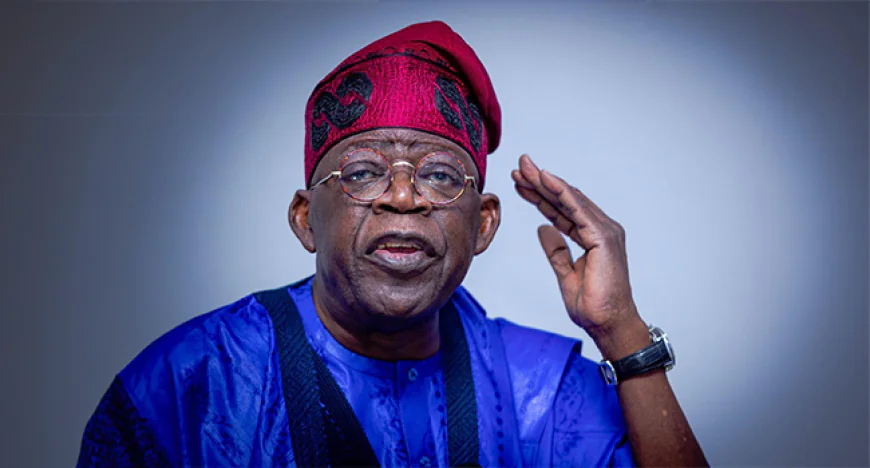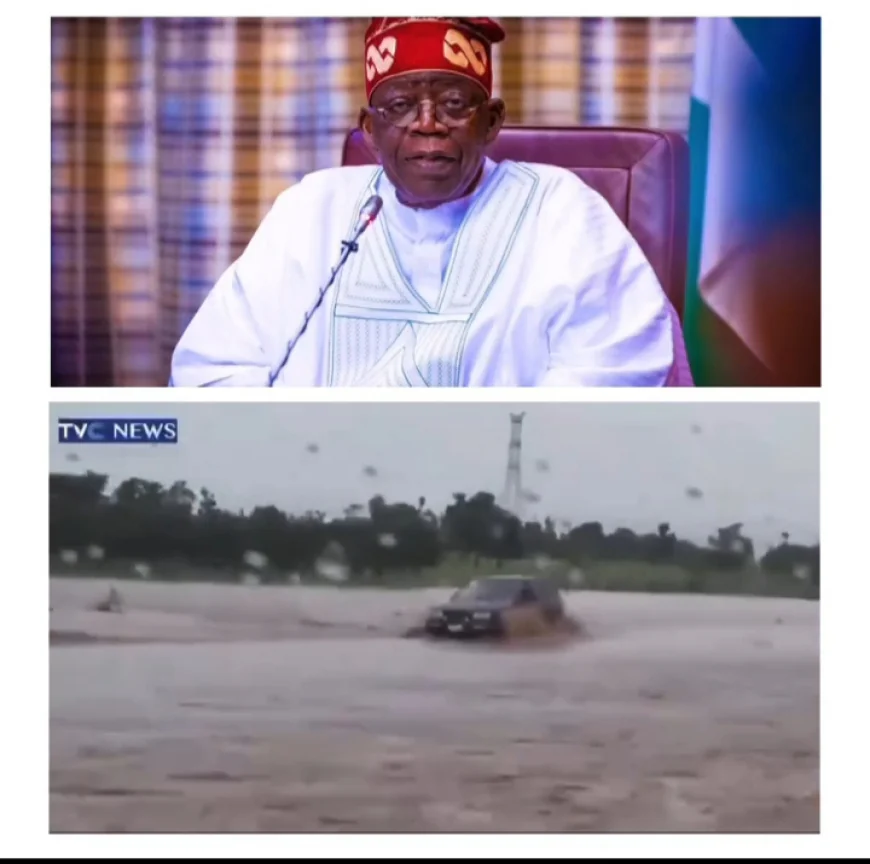Breaking: President Tinubu's Convoy Stuck in Heavy Flood on the Lafia-Makurdi Road
President Tinubu’s convoy was caught in a flood on the Lafia-Makurdi road en route to Benue, drawing sharp criticism over Nigeria’s poor infrastructure during a national crisis.

President Bola Ahmed Tinubu’s convoy was trapped in a massive flood on the Lafia-Makurdi road Wednesday morning while en route to Benue State, bringing national attention to the country’s deteriorating infrastructure amid ongoing crises.
Video Footage Fuels Public Frustration
The incident, captured on video by TVC News Nigeria, quickly circulated on social media, where it triggered widespread outrage. Many Nigerians expressed dismay over the poor condition of the road and questioned why such a major transport route remains vulnerable to flooding—especially during the rainy season.

Comments across platforms like X (formerly Twitter) and Facebook criticized the government's failure to maintain key national infrastructure, particularly at a time when leadership visibility and public trust are already under strain.
Calls for Accountability and Emergency Preparedness
The event has renewed concerns about Nigeria’s preparedness for emergencies and the ineffectiveness of road networks across key regions. Critics say the fact that even the President’s motorcade could be delayed highlights just how dire the situation has become for everyday Nigerians.
Infrastructure analysts have long warned that neglected roads, poor drainage systems, and a lack of preventive maintenance could leave much of Nigeria’s population vulnerable—especially in flood-prone regions.
Leadership Under Scrutiny
The flood incident raises urgent questions about leadership priorities and the allocation of national resources. Citizens are demanding a shift from rhetoric to action, with calls for immediate repairs on federal highways, better disaster management systems, and transparent budgeting for infrastructure projects.
As climate events become more frequent and intense, many believe Nigeria must move beyond reactive governance and adopt long-term, sustainable strategies for national development.


